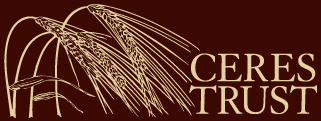Identifying heirloom and specialty varieties resistant to silver scurf disease for organic potato production
Graduate Student Final Report – Ceres Trust Research Grant
Graduate Student: Chakradhar Mattupalli (Department of Plant Pathology, University of Wisconsin-Madison)
Major Professor: Dr. Amy O. Charkowski (Department of Plant Pathology, University of Wisconsin-Madison)
Collaborators: Tom, Brian and Brad Igl, Igl Farm, Antigo, WI; Chris Malek, Malek Farm, Rosholt, WI; George Kohn, West Star Farm, Cottage Grove, WI
View/Download Full Report in Microsoft Word Format
Summary:
Potato (Solanum tuberosum) is the fourth largest food crop in the world and the leading vegetable crop in the United States. There are about 250 organic farms growing potatoes in Midwest, with about 130 of these farms located in Wisconsin. Many biotic factors limit organic potato production including silver scurf, caused by Helminthosporium solani, and black dot, caused by Colletotrichum coccodes. These are tuber blemish diseases of potatoes affecting processing and fresh market trade.
Lack of effective control measures is driving these diseases to become important. The main goal of this project is to offer a solution to the organic potato growers that are both long-term and eco-friendly. With the funding provided by the Ceres Trust, we were able to identify two specialty varieties that possess some tolerance to both diseases in field. We also conducted in-vitro assays and identified a breeding line that had promising levels of resistance to silver scurf disease.
